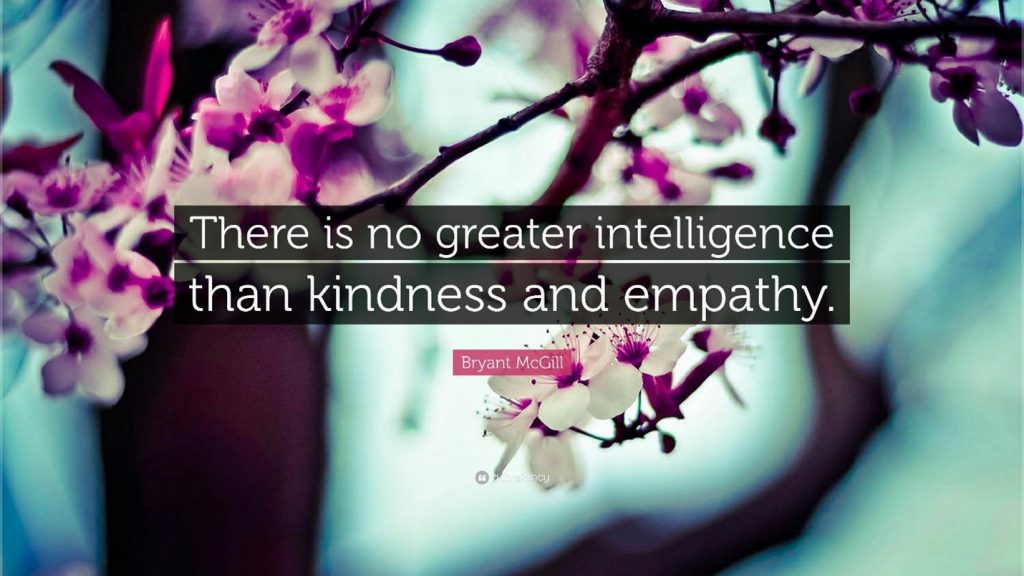I’m sure you agree the need for human connection and understanding has grown significantly in the last 18 months. Many of your employees and customers have experienced stress, frustration, fear, isolation or uncertainty. Therefore, if you want to be viewed as a valued employee or leader, and build relationships, be sure to elevate empathy to your priority list.
What is Empathy?
Empathy is the ability to understand what another person is experiencing and feeling. You actually imagine being in your co-worker’s, customer’s or employee’s shoes. Ask yourself, “I wonder what it would feel like if I was experiencing this?” Perhaps they were passed up for a promotion, under financial stress or frustrated with their progress. You are simply trying to understand how they really feel to gain more insight to solve their problem. Please don’t confuse sympathy with empathy. Sympathy is when you feel sad or sorry for someone and express concern. While this is certainly nice, I may not feel you truly understand and can help me.
Why Empathy is an Important Skill in the Workplace
- Trust is Developed – It’s impossible to have a relationship with someone if we don’t trust that person. However, if you feel I am genuine and show a sincere willingness to understand your problem, you will trust me to provide a solution and listen to my ideas.
- Curiosity Leads to Opportunities – When you are empathetic, ask high-impact questions and listen attentively, you will naturally hear opportunities to contribute and help your teammates or customers. This means your boss, customers and colleagues will welcome answering your questions and view you as a key contributor. Therefore, be curious and dig deeper with open-probing questions to engage in meaningful conversations. Open probing questions begin with what, how, and tell me e.g., Tell me what your greatest challenge is and how I can help.
- Uncover hidden goals – The empathy and trust you convey while solving a problem often leads to uncovering another hidden goal. For example, in discussing how I can improve my customer service skills you also ask about my future goals. I share that I’d like to be a manager with my own team one day. Now you uncovered a key dream and can partner with me to make that happen.
Three Ways to Develop Your Empathy Muscles
- Practice, Practice, Practice Empathy Statements with a Question – Never assume you understand what your employee, co-worker or customer is feeling and experiencing. Be willing to get out of your comfort zone and explore further before offering a solution or advice. Consider giving an empathy statement and then ask an open-probing question to learn more. Here are some examples:
- If I were in your position, I’m sure I’d have the same concerns and frustrations. Tell me, what’s most important to you now and how can I make this process easier?
- I really want to help here. I’d like to ask you a few questions to be sure I totally understand your goals. What has been your experience with our career development program and what are you hoping to accomplish?
- So if I’m hearing you correctly, it sounds like you are not happy with your teammates and their progress on the computer conversion. Tell me, what do you believe is causing the delay and what recommendations do you have to improve?
- Listen Attentively and Be Present – If you spend most of your time talking, you’ll miss the real emotions and essence of what is being conveyed. Focus on slowing down and being present in the moment. What is your employee or customer really saying? What do you sense they are not saying? When it’s your time to talk, take a big pause before rushing into a response. Periodically summarize and repeat back some key information to check for understanding.
- Be Open and Willing to Share – I don’t know about you, but I really appreciate people who are not perfect and are willing to admit past struggles. Let’s face it, we all have our imperfections and experience disappointments. They just make us more relatable and approachable. Imagine I’m struggling with burnout and hoping you can help me with suggestions. I find it encouraging if you share how you’ve dealt with stress and burnout at work. In other words, when we are courageous enough to be a bit vulnerable ourselves, people are more likely to share with us as well.
In summary, empathy is an essential and valuable skill you can learn and acquire. It’s the key to make an emotional connection and build trust with your employees and customers. Empathy is the key to your professional and personal success!
FYI – I’m excited to offer my virtual programs for your leadership conference or staff kick-off.
Check out the demo video by clicking on my picture below. For an exploratory call, click Contact Barb, email [email protected], or call me at 858-674-5500 x101.
Thanks for reading this post and sharing your observations!
Barb












Leave a Reply